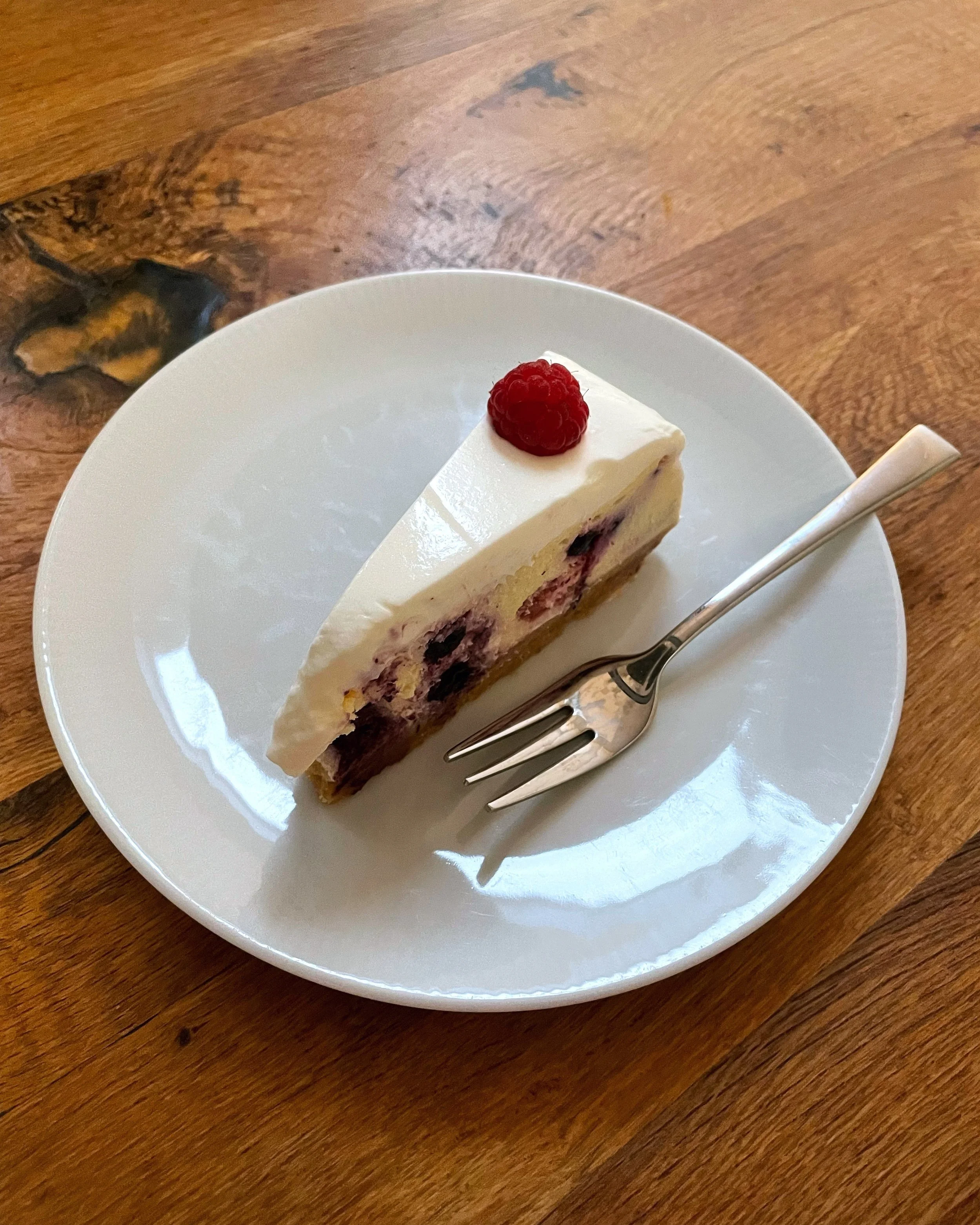hi there!
Hi! Nice to meet you, my name is Emo and I love to bake different sweet goods.
It is 5 years since I made my first baked New York-style cheesecake…
When some people think of the humble cheesecake they think of the United States and in particular New York, however the history of cheesecake dates back thousands of years (some say up to 4,000 years ago), with its origins going back to ancient Greece.
The earliest known mention of “cheesecake” (plakous meaning “flat mass”) dates back to ancient Greece. It is believed to have originated on the Greek island of Samos. Physical anthropologists unearthed cheese molds there dating back to around 2,000 B.C. While cheese and cheese-related products likely existed for millennia before this discovery, records from periods earlier than this delve into prehistory, before the advent of written language, leaving much to speculation. In ancient Greece, cheesecake held a revered status as a source of energy, evidenced by its provision to athletes during the inaugural Olympic Games in 776 B.C. Additionally, Greek newlyweds often celebrated their nuptials with cheesecake, which was fashioned from basic ingredients such as flour, wheat, honey, and cheese, pounded smooth into patties, then cooked on an earthenware griddle.
In 230 A.D., Greek philosopher and historian, Athenaeus, is credited for documenting the process of making cheesecake in his writings. (By this time, the Greeks had been serving cheesecake for over 2,000 years but this is the oldest known surviving Greek recipe.) These ancient Greek cheesecakes were likely made with simple ingredients such as cheese, wheat flour, and honey, baked on a crust.
There are four fundamental types of cheesecake, with the type and even the brand of cheese influencing both texture and flavor: Curd-based cheesecake, encompassing varieties like farmer’s cheese, pot cheese, or cottage cheese; ricotta cheesecake, synonymous with the Italian tradition; quark cheesecake, representative of German cuisine; and cream cheese cheesecake, famously associated with New York-style cheesecake. Furthermore, an unbaked, chiffon-like rendition of cheesecake exists, known as French cheesecake.
